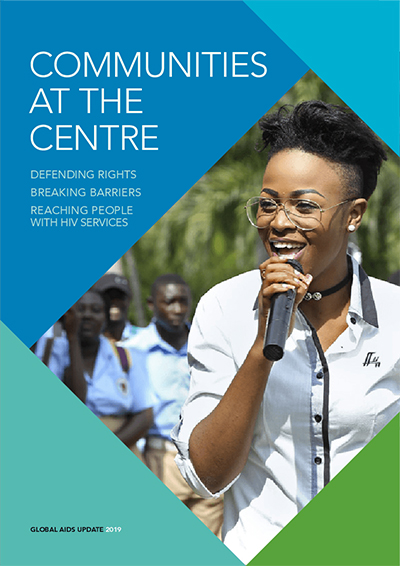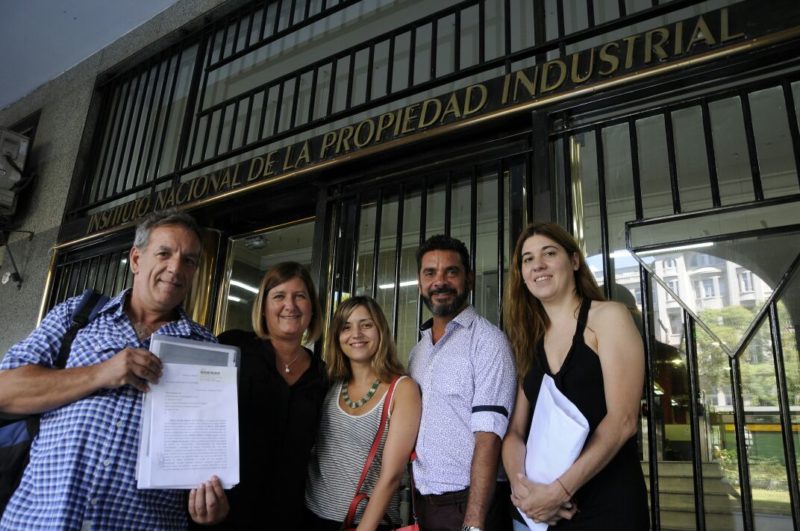The work of our campaign partner in Argentina, Fundación Grupo Efecto Positivo (FGEP), has been documented in UNAIDS’ Global AIDS Update 2019. The publication title reflects the theme of this year’s World AIDS Day – communities make the difference.
When it comes to defending rights, breaking barriers, and reaching people with HIV services, communities have the fundamental and leading role. Our global campaign partners, all civil society organizations, are experts in challenging intellectual property barriers to access to medicines. We believe that a sustainable response to HIV is only possible if optimal treatment is affordable and accessible.
Read the story first published in the UNAIDS report below, and view the Global Update in full.
 Equitable access to affordable medicines remains a major concern in middle-income countries, which are home to more than half of the world’s people living with HIV.
Equitable access to affordable medicines remains a major concern in middle-income countries, which are home to more than half of the world’s people living with HIV.
Due to the income classification of these countries, they often do not benefit from voluntary licensing agreements and drug access programmes from pharmaceutical companies that would greatly reduce the prices they pay for antiretroviral medicines. Many middle-income and high-income countries also face demands to introduce even stricter intellectual property rules that would further hinder access to more affordable, generic antiretrovirals and other medicines. As a result, the prices of antiretrovirals in many middle-income countries are considerably higher than in low-income countries.
Argentina, a high-income country undergoing an economic crisis, has found itself in such a predicament.
In response, communities of people living with HIV have been monitoring patent applications and, with the support of legal experts, challenging patents that may block access to treatment. Success can reduce the overall costs of medicines through increased competition and the import of more affordable generic versions of drugs.
Leading such efforts in Argentina is the Fundación Grupo Efecto Positivo (FGEP), a non-profit organization working to improve the quality of life of people living with HIV. “We started fighting in order to save our lives,” says Lorena Di Giano, a human rights lawyer and treatment activist who founded the organization. She also coordinates a regional programme for improving access to antiretroviral medicines in Latin American countries by addressing factors that affect access to them, such as intellectual property rights.

Fundación Grupo Efecto Positivo (FGEP), Argentina. Founder, Lorena di Giano, second from the left.
In 2015, the price of a first-line antiretroviral regimen in Argentina was US$ 2642 per person per year, 26 times higher than the lowest-priced generic version of this regimen (US$ 100)*. That price discrepancy was due mainly to a patent application that had been filed on this fixed-dose combination.
FGEP analysed the application and filed two patent oppositions, arguing that the drug was not patentable because its combination of three existing antiretrovirals did not amount to “invention” or “novelty,” which are basic requirements for patenting a pharmaceutical drug in Argentina.
The drug was not patentable – it did not meet the basic requirements for patenting a pharmaceutical drug in Argentina.
With support from the International Treatment Preparedness Coalition (ITPC), FGEP monitored the patent application process and purchase price of the drug. Joined by a range of allies, it lobbied decision-makers, engaged in policy dialogues and kept the story in the media. It also supported the government’s efforts to pursue generic purchasing and encouraged generic drug suppliers to enter the Argentine market.
Di Giano says FGEP’s work encouraged the Ministry of Health to consider sourcing generic antiretrovirals. “This was technically possible because the patent application was pending and had not been granted yet; buying generics would not have constituted an infringement,” she explains. “Our work aims also to raise awareness [among] decision-makers, and we engage in dialogue with them before taking any action.”
As a result of this legal, technical and advocacy campaign, both patent applications were withdrawn by the pharmaceutical companies that had filed them. This opened the way for generic competition, which led the price of the first-line regimen to fall to US$ 152 per person per year—a 94% price reduction. This amounted to a savings of US$ 37 million for the country’s national AIDS programme.
This led to a 94% price reduction – and savings of US$ 37 million for the country’s national AIDS programme.
The breakthrough in Argentina was one of several victories achieved as part of a four-country Make Medicines Affordable campaign led by ITPC with support from Unitaid. At the end of 2017, the coalition reported price reductions of 50% or more on at least two key antiretroviral medicines and approximately US$ 472 million in annualized cost savings across focus countries.
The campaign has been extended to cover 19 middle-income countries in Asia and the Pacific, eastern Europe and central Asia, and the Middle East and North Africa. It is also widening its focus beyond antiretrovirals to hepatitis C and tuberculosis medicines.




